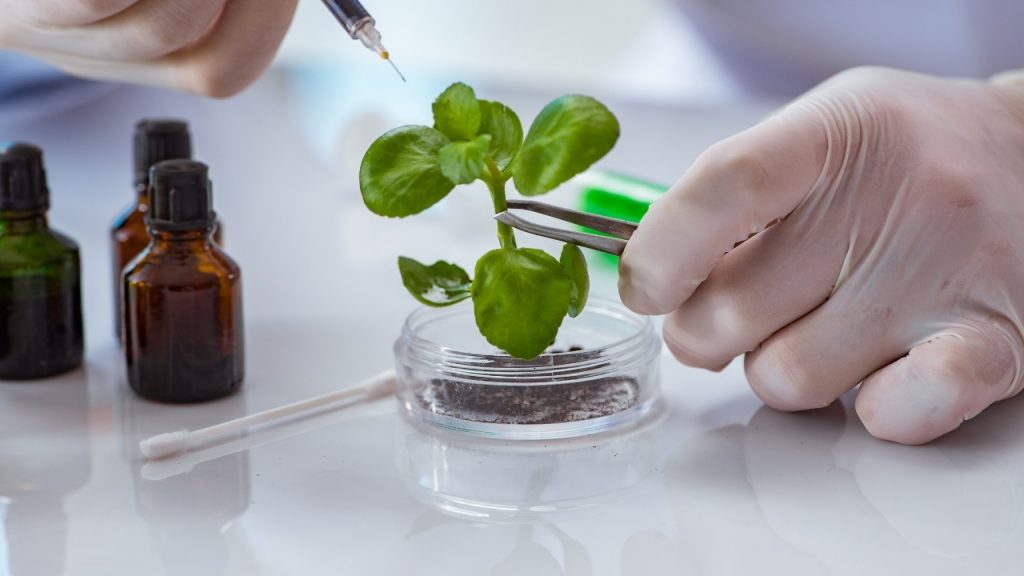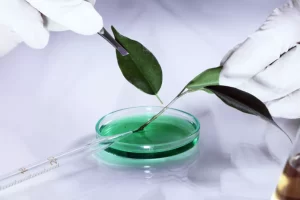Complete Guide to the PhD Biotechnology Program in Pakistan
For individuals passionate about research and development, a PhD Biotechnology can open doors to leadership roles in academia, industry, and scientific research. In Pakistan, several universities, including the University of Faisalabad (TUF), offer high-quality PhD programs in Biotechnology.
Biotechnology is an exciting and rapidly growing field, offering immense potential to solve global challenges in health, agriculture, and environmental protection.
This guide provides detailed information on the PhD Biotechnology program in Pakistan, covering everything from admission requirements to future career prospects.
Introduction to PhD Biotechnology
PhD in Biotechnology is an advanced research-based program designed to equip students with the necessary skills to address complex biological and technological issues.
The program focuses on the application of biological systems and organisms to create or modify products and processes that improve lives.
This degree is ideal for students who aim to become experts in the field of biotechnology and contribute to breakthroughs in medicine, agriculture, and industrial biotechnology.
Admission Requirements
The admission process for PhD Biotechnology in Pakistan typically includes an entrance exam and an interview. Universities like the University of Faisalabad (TUF) require candidates to have a relevant Master’s degree (such as an MPhil or MS in Biotechnology) with a minimum CGPA of 3.0 or first division in the final examination.
Some institutions may also ask for research proposals as part of the application process. Additionally, students are expected to pass an entry test, often aligned with the Higher Education Commission (HEC) requirements.
Fee Structure
The fee structure for the PhD Biotechnology program in Pakistan varies depending on the institution. On average, the total cost for the program can range from PKR 300,000 to PKR 800,000 per year, depending on the university and its facilities.
For example, the University of Faisalabad (TUF) offers competitive tuition rates, making it an attractive option for aspiring biotechnologists. Along with tuition fees, students may also need to cover additional costs such as research materials, lab fees, and accommodation, if required.
Eligibility Criteria
To be eligible for a PhD Biotechnology program in Pakistan, applicants must meet specific academic and professional requirements. A Master’s degree (MPhil/MS) in Biotechnology or a related field is mandatory.
Furthermore, candidates are required to have a minimum CGPA of 3.0 or a first division in their Master’s degree. Prior research experience or published papers can enhance the chances of admission.
The ability to formulate a research proposal is also crucial, as this demonstrates the applicant’s readiness for independent research.
Subjects and Semesters
PhD Biotechnology is a research-oriented program where the primary focus is on the student’s dissertation. However, most universities, including TUF, offer initial coursework to strengthen the student’s foundational knowledge.
Subjects in the coursework phase may include Advanced Molecular Biology, Genomics, Proteomics, Bioinformatics, and Biotechnology in Agriculture. After completing the coursework, students spend the majority of their time conducting research under the guidance of a supervisor.
The PhD program typically spans six to eight semesters (3-4 years), depending on the student’s progress and the research complexity. Some students may take longer if their research requires extensive data collection and experimentation.
Age Limit
Most universities in Pakistan, including the University of Faisalabad, do not enforce a strict age limit for admission to the PhD Biotechnology program. However, students are encouraged to begin their PhD studies early in their careers to maximize research output and future job prospects.
Future Scope of PhD Biotechnology
The scope of PhD Biotechnology is vast and ever-expanding. Graduates can find opportunities in various sectors, including pharmaceuticals, agriculture, healthcare, and environmental conservation.
In Pakistan, biotechnology is gaining traction, with industries recognizing the potential for innovation in drug development, genetically modified crops, and sustainable environmental practices. Globally, PhD holders in biotechnology are in demand for their expertise in cutting-edge research and technology.
Salary and Jobs
PhD Biotechnology graduates in Pakistan have access to a wide range of career options. They can pursue academic roles as professors or researchers in universities, including the University of Faisalabad, which offers excellent research facilities.
Graduates can also work as research scientists, biotechnologists, or quality control managers in pharmaceutical companies, agricultural industries, and environmental organizations.
The salary for PhD Biotechnology graduates can vary widely depending on their role and industry. In Pakistan, entry-level research scientists can expect to earn around PKR 80,000 to PKR 150,000 per month, with salaries increasing significantly with experience and specialization.
Those in senior positions in pharmaceutical or agricultural biotechnology companies can earn even higher salaries, sometimes exceeding PKR 250,000 per month.
Conclusion
A PhD in Biotechnology is a prestigious and rewarding academic pursuit for those interested in advancing their knowledge and contributing to scientific progress. With its strong curriculum, research opportunities, and future career prospects, the PhD Biotechnology program in Pakistan is an excellent choice for aspiring biotechnologists.
The University of Faisalabad (TUF) stands out as a leading institution, offering students a supportive environment and the resources needed to excel in this cutting-edge field. Read more here!





